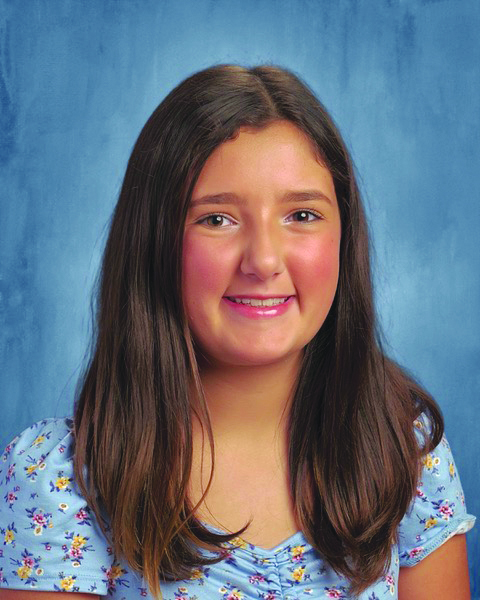The latest from NH’s theater, arts and literary communities
• Joy of the season: The Nashua Choral Society will present their annual holiday concert “Rejoice! ’Tis the Season!” on Sunday, Dec. 4, at 3 p.m. at the Immaculate Conception Catholic Church (216 E. Dunstable Road in Nashua). The event will feature Handel’s Messiah, a Christmas carol sing-along and more performed by the chorus with accompaniment by a pianist and small chamber orchestra, according to a press release. Tickets cost $20 for adults and $10 for students (free for children) and are available at the door and online at EventBrite, among other places. See the Nashua Choral Society’s Facebook page or email info@nashuachoralsociety.org.
Russian Ballet Academy performance
The Epping Community Theater will host the Russian Ballet Academy’s Winter Showcase featuring excerpts from The Nutcracker and other famous ballets as well as original pieces at the Epping Playhouse (38 C Ladd’s Lane in Epping; eppingtheater.org) on Saturday, Dec. 10, at 4 p.m. Doors will open at 3:30 p.m. and tickets will only be sold at the door; tickets cost $12 for adults and $7 for children 12 and under (cash only), according to a press release.
• For makers: The Currier Museum of Art (150 Ash St. in Manchester; currier.org, 669-6144) has a Community Makers’ Series of workshops on Thursdays in December during Art After Work (5 to 8 p.m. every week). The workshops include “Felted Treasures” and “Bookmaking” on Dec. 1; “Embroidered Hoops” and “Bookmaking” on Dec. 8, and “Bookmaking” on Dec. 15 (each Bookmaking class has a different focus). Register for the workshops (which vary in price) on the website.
A little a cappella
The Souhegan Valley Chorus will perform their holiday concert “Sharing Christmas Joy” with special guests, the a cappella group REHarmonix, on Saturday, Dec. 10, at 7 p.m. at the First Congregational Church, 10 Union St. in Milford. Tickets can be purchased at the door and cost $18 for adults and $15 for students and seniors and are free for ages 12 and under, according to a press release.
• Art shopping: Among the many craft fairs and arts markets and open houses this weekend, head to the Bates Building (846 Main St. in Contoocook) for an artists’ reception of the Two Villages Art Society’s “Winter 2022 Members Art Show” on Saturday, Dec. 3, from noon to 2 p.m. The show features works of more than 30 artist members including oil and watercolor paintings, ceramics, prints, photos, jewelry, woodworking, glasswork, felted animals, wearable art and more, according to a press release. The gallery is open Thursdays through Sundays from noon to 4 p.m. and the show runs through Saturday, Dec. 24. This weekend the show will be open extended hours for Hopkinton’s “Starry, Starry Weekend,” which runs Friday, Dec. 2, through Sunday, Dec. 4, 10 a.m. to 4 p.m. daily.
Suddenly Silver Bells
The New Hampshire Gay Men’s Chorus kicks off its holiday concert series, “Suddenly Silver Bells,” with shows this weekend. On Saturday, Dec. 3, at 7:30 p.m., catch the performance at Christ the King Lutheran Church (3 Lutheran Drive, Nashua). Then on Sunday, Dec. 4, at 4 p.m., the chorus will be at Holy Trinity Lutheran Church (22 Fox Run Road, Newington). The chorus also has two performances next weekend. Tickets cost $20 for adults; admission is free for children ages 12 and under. Visit nhgmc.com.
Craft fairs
It’s a big weekend for craft fairs. If you know of one coming up, let me know at adiaz@hippopress.com.
• Starry Starry Weekend takes place in Contoocook Village from Friday, Dec. 2, through Sunday, Dec. 4, starting at 10 a.m. each day. In addition to an artisan craft fair, local shops and artists will have pop-ups around town. Visit contoocookchamber.com.
• Winter Giftopolis by the Concord Arts Market is one of the many shopportunities at Intown Concord’s Midnight Merriment on Friday, Dec. 2. Giftopolis will run from 6 to 11 p.m. at the Atrium at 7 Eagle Square. See concordartsmarket.net
• The Pine Hill Holiday Fair at High Mowing School (77 Pine Hill Drive, Wilton) features an artisan market for adultson Friday, Dec. 2, from 6:30 to 9:30 p.m. and family festivities on Saturday, Dec. 3, from 10 a.m. to 2 p.m. See pinehill.orgn.
• The First Baptist Church of Nashua (121 Manchester St. in Nashua; fbcnashua.org) will hold an Olde-Fashioned Christmas Fair on Saturday, Dec. 3, from 8 a.m. to 2 p.m. There will be handmade crafts as well as food and other activities.
• The Unitarian Universalist Congregation of Milford (20 Elm St. in Milford; uucm.org) will hold a holiday fair on Saturday, Dec. 3, from 8:30 a.m. to 2 p.m. featuring handcrafted items (such as jewelry, ornaments, handmade cards, gnomes, knitted items, pet items and more), a bake shop, a boutique of gently used items and a cafe serving breakfast and lunch, according to an email.
• Arlington Street United Methodist Church (63 Arlington St., Nashua; asumc.org, 882-4663) holds its Holly Town Fair Saturday, Dec. 3, from 9 a.m. to 2 p.m. featuring vendors with handmade items, crafts, candies, baked goods and a cookie walk and to-go lunches from 11 a.m. to 1 p.m.
• The Amherst Lions Club holds its Craft Fair Saturday, Dec. 3, from 9 a.m. to 3 p.m. at Amherst Middle School (14 Cross Road) featuring more than 80 juried craftsmen, a shopping bag (while supplies last), a food bar, raffle, a scratch ticket tree and more, according to e-clubhouse.org/sites/amherstnh.
• The Somersworth Festival Association will host a Holiday Craft Fair on Saturday, Dec. 3, from 9 a.m. to 3 p.m. at Somersworth High School (11 Memorial Drive in Somersworth) featuring wood crafts, pottery items, wreaths, paintings, metal work, mugs, tote bags, gnomes, wind chimes, kids’ items, jewelry, knitted and crocheted items and more as well as food and raffles, according to a press release. See nhfestivals.org.
• The Gilford High School Craft Fair (88 Alvah Wilson Road in Gilford) will run Saturday, Dec. 3, from 9 a.m. to 3 p.m., according to the event’s Facebook page.
• The Holiday Food & Arts Market focus this Saturday, Dec. 3, at the YMCA Allard Center of Goffstown (116 Goffstown Back Road) is “All Creatures Great & Small” with animal lovers accessories, items for cats and dogs and baked goods for people and pets, according to a post on the YMCA’s Facebook page. The fair runs from 10 a.m. to 1 p.m.
• The Unitarian Universalist Church of Manchester (669 Union St. in Manchester; uumanchester.org) will hold its annual holiday faire on Saturday, Dec. 3, from 10 a.m. to 2 p.m. in the church’s fellowship hall.
• You can also catch the Concord Arts Market this weekend with its annual Holiday Arts Market on Saturday, Dec. 3, from 10 a.m. to 3 p.m. at the Kimball Jenkins School of Art (266 N. Main St. in Concord). See concordartsmarket.net.
• The Picker Artists Holiday Shopping Day at the Picker Artists building (3 Pine St. in Nashua) on Saturday, Dec. 3, from 10 a.m. to 5 p.m. with handmade gifts, live music, snacks and more, according to pickerartists.com.
• The Grinnell School PTA will hold a Holiday Craft Fair at Grinnell Elementary School (6 Grinnell Road in Derry) on Saturday, Dec. 3, from 11 a.m. to 3 p.m. featuring more than 30 vendors as well as raffles, baked goods and more, according to a PTA facebook post.
• The 7th Annual Nashua Holiday Fair at Broad Street Elementary School (380 Broad St. in Nashua) will run Saturday, Dec. 3, from 11 a.m. to 4 p.m. at the school and feature more than 40 crafters and vendors as well as Santa and the Grinch on site taking photos, according to a New England Vendor Events Facebook post.
• The 33rd annual Christmas in Strafford, an event featuring 24 locations and pieces from more than 50 artists and craftspeople, runs Saturday, Dec. 3, and Sunday, Dec. 4, from 9 a.m. to 4 p.m. both days; see the map at christmasinstrafford.com.
• The Nashua Holiday Craft & Vendor Festival Fair will be held Sunday, Dec. 4, from 9 a.m. to 2:30 p.m. in the Eagles Wing Function Hall at 10 Spruce St. in Nashua. The fair will feature more than 40 crafters and vendors, sweets and treats, raffles and more, according to the Bazaar Craft Fairs Facebook post.
Also check out the story in this issue about the Made in NE Expo (page 25) and see last week’s big Holiday Guide for a listing of multi-week fairs and art exhibits filled with gift-ready items. See hippopress.com for the e-edition of the Nov. 24 issue.



